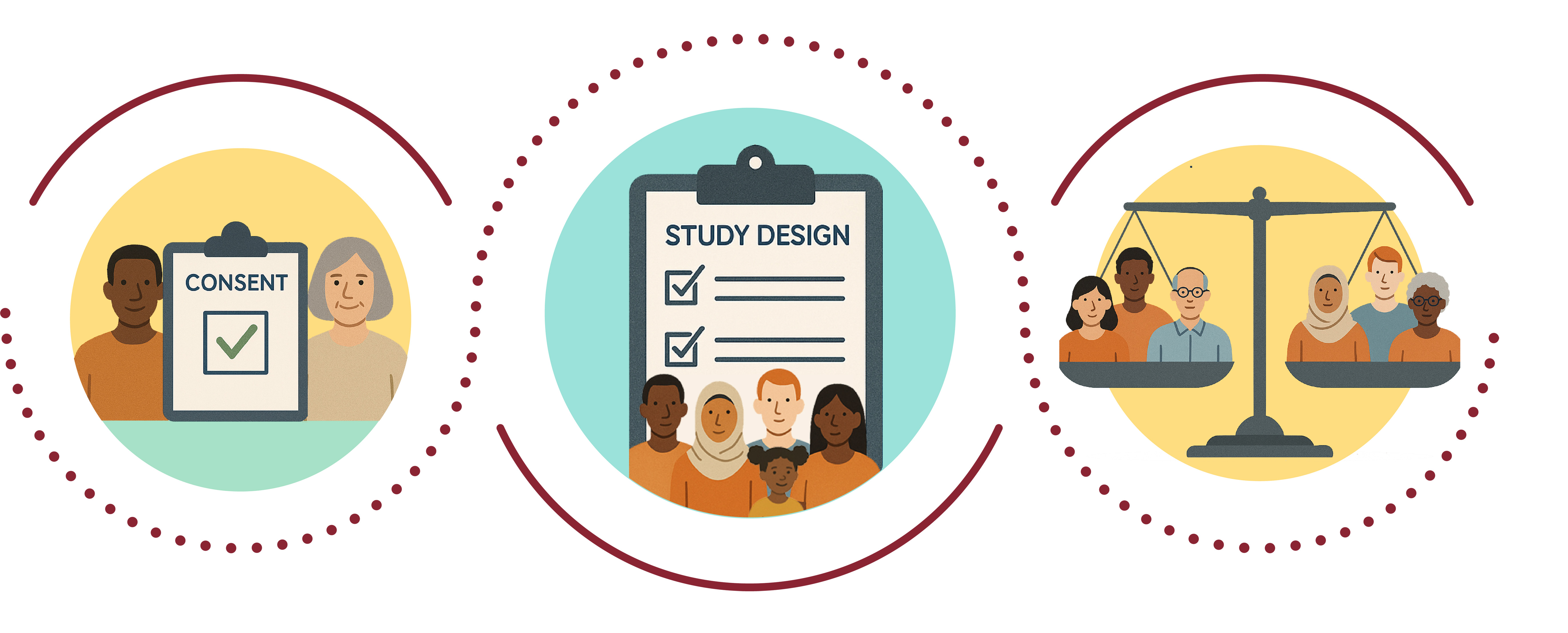Human Research
North Carolina Central University (NCCU) is dedicated to upholding the highest ethical standards in research through its Human Research Protection Program (HRPP). An important aspect of NCCU's HRPP is providing educational support to faculty, staff, and students interested in and/or engaged in human research. The program ensures that all human participants involved in research are protected — their rights respected, and their welfare prioritized.
NCCU's HRPP adheres to applicable federal and state regulations, as well as institutional policies and procedures developed in accordance with the Belmont Report. An integral component of NCCU's HRPP, ensuring compliance to regulations and institutional rules, is the university's Institutional Review Board (IRB). This commitment to ethical oversight ensures that research conducted at NCCU is both scientifically rigorous and ethically sound, fostering trust and integrity in the university's research endeavors while safeguarding the well-being of participants.



